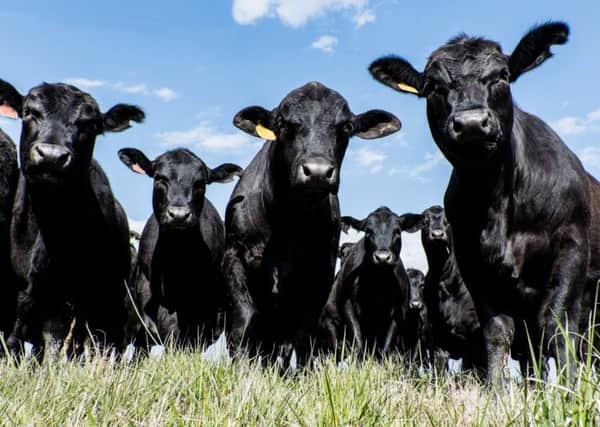Why Scottish councils need to encourage pupils to go vegan - Mimi Bekhechi


Missing a day of school to protest is a mere drop in the over-fished ocean and a scratch on the Earth’s over-farmed surface compared with the impact that students could make three times a day, every day, by leaving meat, eggs and dairy off their plates. And they’d probably be healthier, too, as vegan foods could help them maintain a healthy weight and avoid obesity-related diseases – as well as slashing their risk of suffering from heart disease, strokes and cancer.
“We need to change ourselves now because tomorrow it might be too late,” says Greta Thunberg, the Swedish teen credited with starting the “school strike for climate” movement, who is vegan herself for both “ethical reasons and ecological reasons”.
Advertisement
Hide AdAdvertisement
Hide AdStudy after study has shown that our appetite for animal-derived foods is largely to blame for climate change, deforestation, and other environmental crises.
The UN Intergovernmental Panel on Climate Change recently called on people to eat less meat in order to reduce greenhouse-gas emissions and protect the world’s rainforests – the very ones that are currently ablaze, partly as a result of fires set by cattle farmers to create grazing land and grow feed crops for cows.
A University of Oxford study found that going vegan is probably the “single biggest way” to cut greenhouse-gas emissions, alleviate world hunger, and conserve water and land. The lead researcher said the impact is “far bigger than cutting down on your flights or buying an electric car”. And it’s estimated that the UK needs to eat 90 per cent less beef, lamb and pork just to meet the carbon-emission reduction targets of the Paris Agreement.
Universities are already getting on board: around 40 per cent of the offering at the University of Edinburgh’s campus cafés is vegan or vegetarian, and there are plans to introduce even more vegan options. Goldsmiths, University of London, recently announced that it will stop selling beef in its campus cafés and shops in order to help curb climate change.
A shift towards healthy, humane vegan foods in Edinburgh schools would surely be well received, since vegans are sprouting up all over the place. At least one-third of Brits are now vegan, vegetarian, or flexitarian, and a poll by Linda McCartney Foods shows that 70 per cent of British children want more vegan options at school.
By serving vegan meals – and encouraging young people to stop eating meat and other animal-derived foods – Edinburgh schools could make a lasting and meaningful impact on the environment, before it’s too late.
As Thunberg says, “Instead of worrying about how our future might turn out, you should try to change it while you still can.”
See PETA.org.uk for more information and a free vegan starter kit.
Mimi Bekhechi lives in Edinburgh. She is the director of international programmes at People for the Ethical Treatment of Animals (PETA)